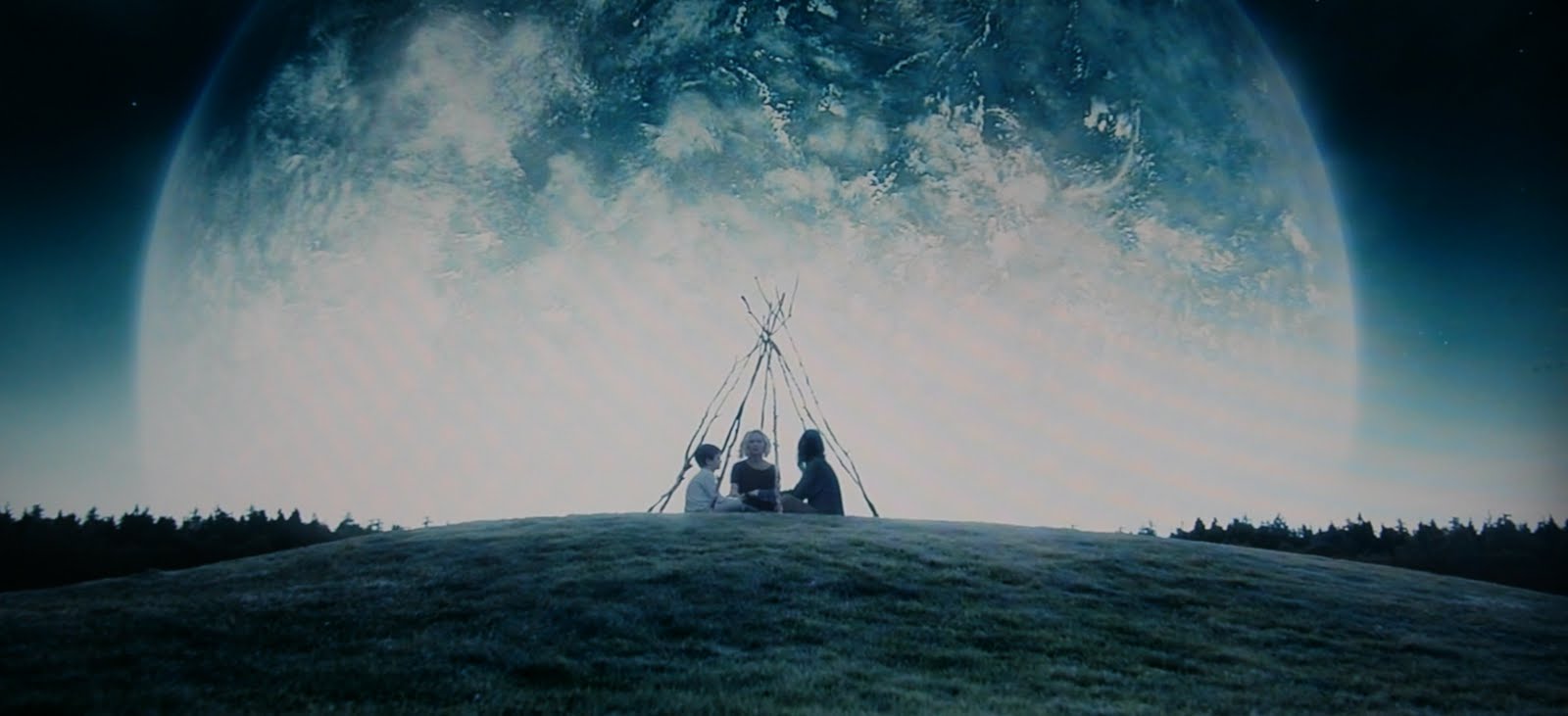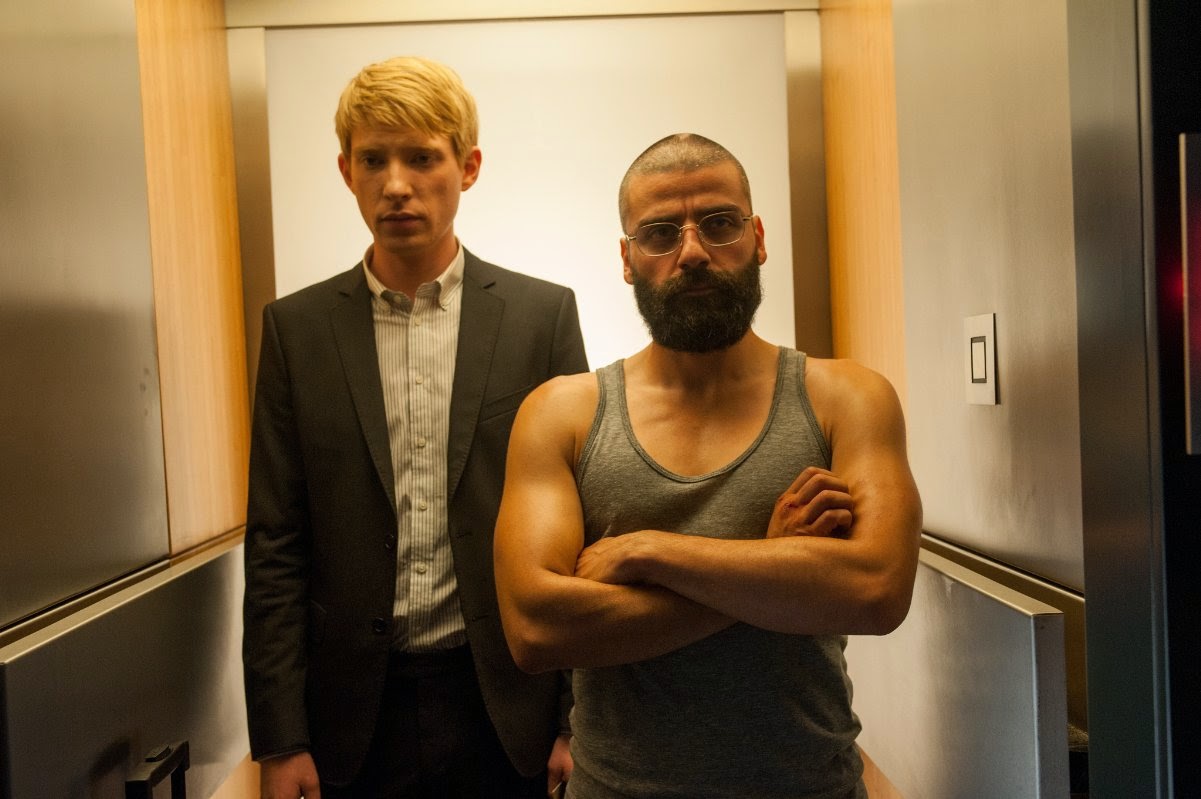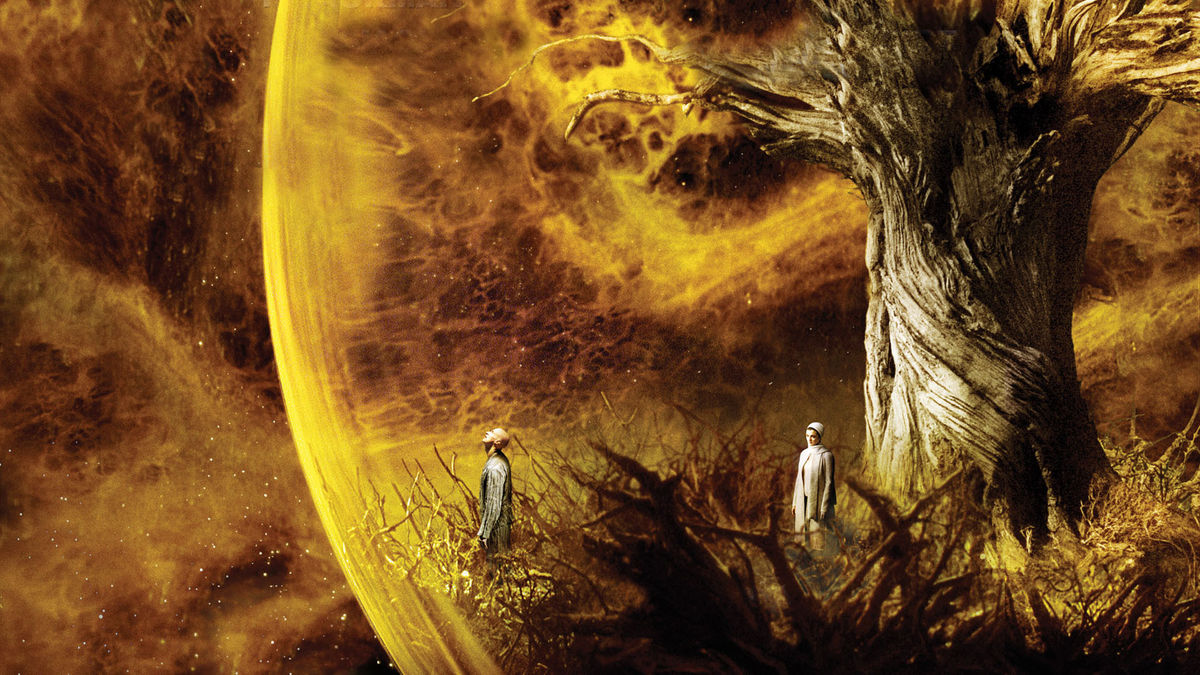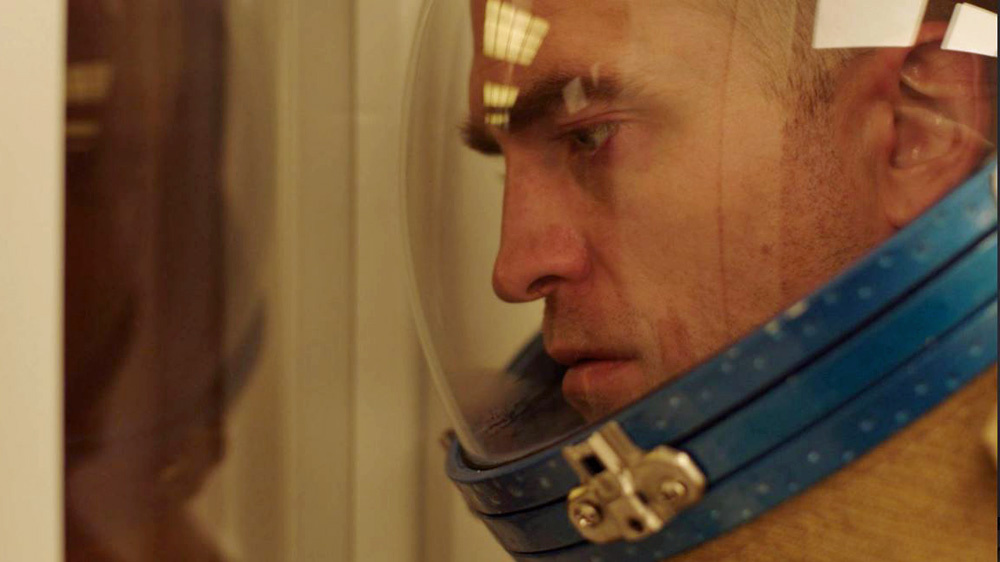5. Melancholia (2011)

Lars von Trier’s hypnagogic and deeply pensive apocalyptic sci-fi powerplay Melancholia is one of the director’s very finest and most visually ravishing motion pictures. It’s so rare a thing that a film capture with such startling insight and due diligence the emotional state that depression casts upon the individual, and for anyone who’s wrestled with that black dog they can easily see the naked truth in Kirsten Dunst’s chef-d’oeuvre central performance as Justine.
Von Trier, with Melancholia, playfully and profoundly upends sci-fi convention in a tense and dangerous spring-loaded narrative that pivots around newlyweds Justine and Michael (Alexander Skarsgård). These ill-fated lovers tie the proverbial knot just as the world learns of the presence of a rogue planet, “Melancholia”, which is believed to be on a near-collision course with Earth and will most certainly be an extinction level cataclysm.
And while that synopsis sounds like another dirge from the oft-gloomy von Trier, a fair share of gallows humor inhabits the film––look no further than Udo Kier as the wedding planner of the apocalypse and try not to chuckle at the drollery of it all.
Led by Dunst’s luminous performance, ably backed by Charlotte Gainsbourg as her sister, Claire, both hanging on the speculations and suspicious that the End of Days might not be so dour for everyone. The film also presents a formal elegance––perhaps best displayed by the slo-mo grand-scale eradication gracefully captured by the Phantom HD Gold cameras––resulting in a lushly unforgettable bookend of astonishing and shocking visuals. An unforgettable showpiece.
4. Ex Machina (2015)

Alex Garland first made his name as a novelist (The Beach), then as a screenwriter (his works include 28 Days Later, Sunshine, and Never Let Me Go), cut his director teeth with Ex Machina (which he also wrote).
A voyeuristic sci-fi thriller and social commentary, that’s also essentially a chamber piece, Garland’s philosophical tale starts with Caleb Smith (Domhnall Gleeson), a programmer for a search engine called Bluebook, who’s invited to meet and stay with it’s illusive CEO, Nathan Bateman (Oscar Isaac) on a new project.
This project involves artificial intelligence in the form of Ava (Alicia Vikander), and instantly an objectifying gaze falls upon her — this objectifying is fitting, considering she’s a robot — and soon tenets of male/female Weltanschauung abounds.
It’s more subversive and thoughtful then its surface suggests, and interestingly, Charles Perrault’s classic fairy tale Bluebeard is reworked and given eerie homage (consider bearded Nathan’s “robot wives” and Ava’s self-aware relation to them, for instance).
Ex Machina grasps for big ideas while articulating a dystopia that’s magnanimous to AI but not towards humanity. The thrills are often unexpected, and the results both bleak and brilliant.
3. The Fountain (2006)

A psychedelic sci-fi fantasy and a historical romance that miraculously maneuvers multiple meanings, ideas, themes, and storylines in an epic triptych that ambitiously spans a thousand years, Darren Aronofsky’s The Fountain centers on the celestial space pursuance of everlasting life represented in a mythical tree.
Starring Hugh Jackman in three roles; as Tomás Verde, a 16th-century Spanish conquistador; Tom Creo a 21st-century neurologist; and Tommy a space traveler in the far future en route to the golden nebula of Xibalba, each fighting to save his beloved (Rachel Weisz) from death, The Fountain takes the biblical tree-of-life from the Book of Genesis and Kabbalah. There’s also a gripping and speculative through line binding neuroscience and Spanish colonialism as well as Mayan myths glimpsed from an indigenous lens, and even a playful yet profound intermingling of David Bowie’s “Major Tom” pop chronicle.
Matthew Libatique’s stunning cinematography give The Fountain it’s most immediate pleasures, presenting an often floating camera-feel that helps the ethereal and romantic elements appear more palatable as in the meticulously detailed and beaming bright with candles 16th-century Spanish court or the darkened yet intricate chambers of the fanatical zealot Grand Inquisitor Silecio (Stephen McHattie) where a gold-lit fringe dazzles with a Bosch-like lucidity.
Aronofsky and Libatique also share a fondness and love of close-ups and we repeatedly see sumptuous glances or long and lovely looks of Jackman and Weisz––in proximity that would surely be lauded and loved by the likes of Ingmar Bergman, for one––in cinematic portraiture that smartly underscores the film’s movement from darkness into light.
The Fountain should be forgiven its poetic flourishes and ambiguous angles as the most important point of the film is irrefutable; it looks like a miracle.
2. High Life (2018)

Who else but French filmmakers Claire Denis (Beau Travail [1999], Trouble Every Day [2001]) could conjure up a space odyssey centered on a crew of doomed astronauts travelling millions of miles from Earth into a black hole that alternates between the serene and sensual as much as it does with eerie beauty and startling brutality?
Also atypical of Denis, High Life spells out almost nothing explicitly in an elliptical tale ostensibly about a reformed murderer named Monte (Robert Pattinson) who winds up raising a daughter named Willow (Scarlett Lindsey) aboard a spacecraft drifting on the edge of oblivion.
Some influences are apparent; the psychedelic headiness of Kubrick’s 2001: A Space Odyssey [1968], the twin sci-fi crescendos of Tarkovsky’s Solaris (1970) and Stalker (1979), Douglas Trumbull’s eco-obsessed Silent Running (1972), even a little of the eccentric astronaut vibe of John Carpenter’s Dark Star (1974) isn’t too far off the mark in places. But how Denis reconfigures these recognizable motifs is where her mastery swells and soars.
High Life is a hauntingly refined work, and one that is stunningly textured, atmospheric, and while ominous (Mia Goth’s tragic turn as Boyse is one of several apparitions that permeate the film) and nasty at times (Juliette Binoche’s postpartum murderer moves beyond redemption as she has no qualms about rape), there are still romantic rhythms and other humanistic complexities captured onscreen.
Denis has devised an original sci-fi tale that is lyrical, even when tenderness becomes terror-filled, and back again. And while it may not win her more fans––she never lets the audience off the hook, making them work to piece it all together––those already attuned to her connotative charms will be enraptured and amazed.
1. Upstream Color (2013)

Shane Carruth’s Upstream Color, is an otherworldly experience that will make the right kind of audience absolutely ecstatic and frequently fighting tears of joy and wonder when not wholly hypnotized by its visual versification and bold narrative.
Amy Seimetz shines as Alex, our put-upon protagonist who finds herself brainwashed into emptying her bank account by a thief (Thiago Martins) who uses a combination of drugs, parasites, and bizarre hypnagogic neuro-linguistic-type programming to dupe her.
Alex eventually regains herself and learns she’s not the only one who has been manipulated in this way to similar dubious ends. Drawn to Jeff (played by Carruth), the two are similarly uncertain of what they lost through their mind-meddling ordeal but, as their lives spiral and entwine, the film, like an amorous Möbius strip, outshines itself, and its heart reaches a hard fought and rather miraculous crescendo.
The artistry on hand is wondrous, with sequences of such aching, ingenious elegance. Upstream Color ranks high as one of the most transformative and spellbinding cinematic experiences you’re likely to have. Only Carruth’s second film (his 2004 debut, Primer, is also one of the most original sci-fi films of this century, check it out) and already he has a pièce de résistance.
Author Bio: Shane Scott-Travis is a film critic, screenwriter, comic book author/illustrator and cineaste. Currently residing in Vancouver, Canada, Shane can often be found at the cinema, the dog park, or off in a corner someplace, paraphrasing Groucho Marx. Follow Shane on Twitter @ShaneScottravis.